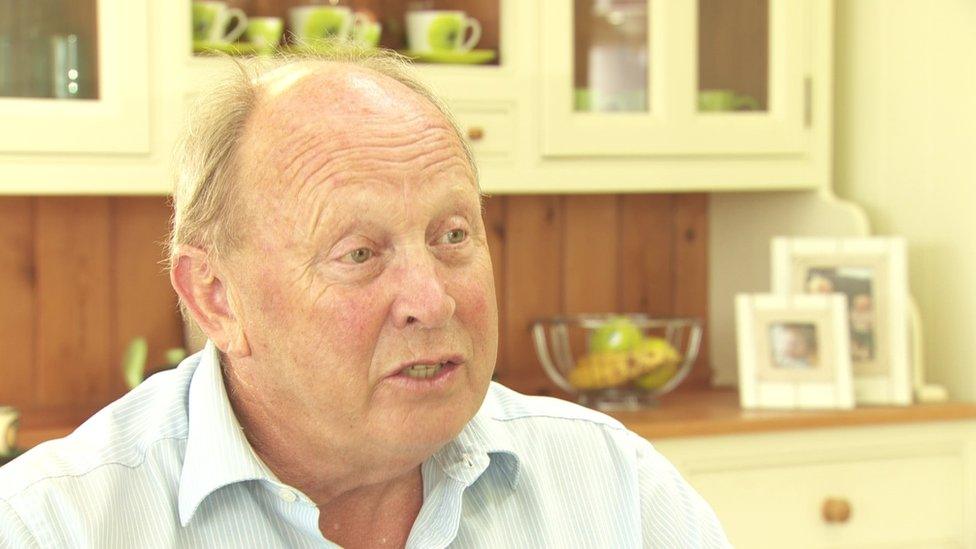Causeway Coast and Glens: Serious findings over £20m hotel plan 'ignored'
- Published
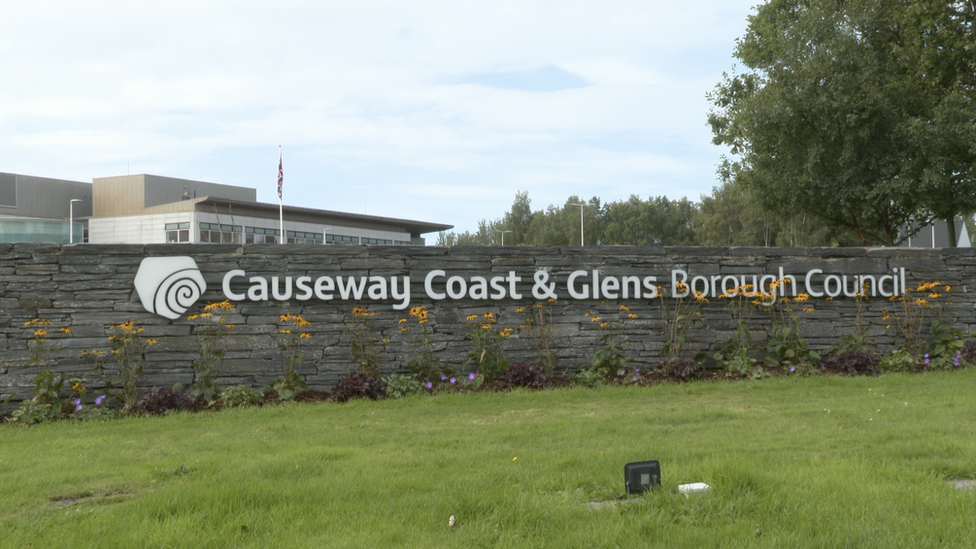
Serious findings against a council chief executive's involvement in a £20m hotel planning process were "closed down and ignored", a watchdog has said.
The Northern Ireland Public Services Ombudsman (Nipso) found several counts of maladministration at Causeway Coast and Glens Borough Council.
It examined a council decision not to take action against CEO David Jackson.
Independent investigators found he was "ultimately responsible" for granting a right of way to developers for £1.
An external HR company was appointed to look at the planning process following complaints by Traditional Unionist Voice assembly member Jim Allister.
Social media trial
The company upheld 15 complaints against Mr Jackson but despite this, a majority of councillors voted not to proceed with the report.
In October 2020, elected members from the Democratic Unionist Party, Ulster Unionist Party and Progressive Unionist Party voted not to continue with it because of a "frenzied trial of the chief executive on social media".
Mr Allister complained about the council's inaction to the ombudsman.
Nipso said that "led to the inexplicable situation whereby serious, justifiable concerns raised by the complainant concerning senior council officers were found to have substance, yet no consequence or action by the council flowed from this".
The ombudsman added that "no discussion on the investigation findings took place" and "the investigation report has been to all accounts and purposes closed down and ignored".
"I consider this to be an unacceptable situation. It is for this reason that I have made my findings of maladministration and I am most critical of the council," she added.
Mr Allister welcomed Nipso's findings and said his complaints had been "vindicated".
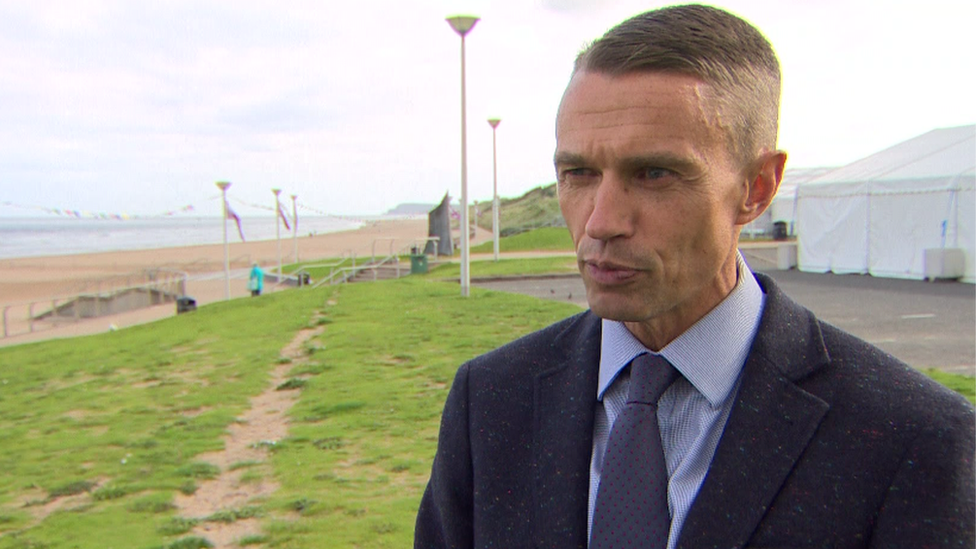
David Jackson, CEO of Causeway Cost and Glens Council, told investigators he had no knowledge the land had been sold for £1
The ombudsman said it was evident that the leaking of the report at the time and subsequent comments on social media "was the focus of debate and not the report's contents...and importantly how the council would deal with the report's serious adverse findings".
She said her investigation of the complaint revealed "a particularly egregious example of poor administration by the council".
The ombudsman acknowledged that the council initially took appropriate action by commissioning the external HR company to look at the complaints.
But said "once the serious adverse findings" were disclosed to the council, no proper discussion of its content took place.
The ombudsman also said there was "a failure to apologise to the complainant".
Nispo recommendations
Nipso has made a series of recommendations to the council.
Its mayor has been advised to issue a written apology to Mr Allister within one month.
The council has been urged to revisit the contents of the HR report and consider seeking legal advice on the veracity and validity of decision not to take any further action in 2020.
The ombudsman has also recommended the council provides evidence of learnings and improvements it has made since the complaint was made.
In August, the council voted to accept the recommendations and make sure they either have already been implemented or are done so "speedily".
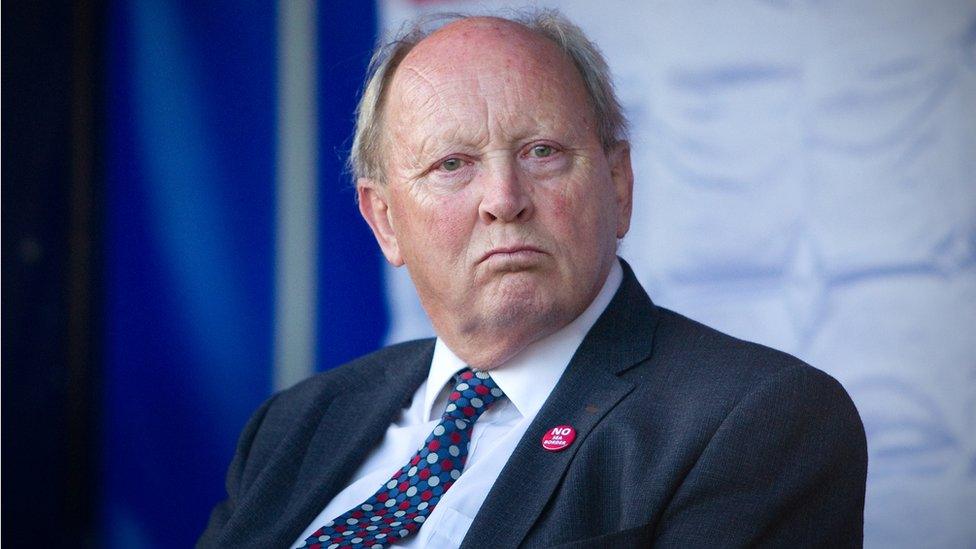
Jim Allister said the council's actions were informed by pollical bias
Mr Allister added: "In my view the approach of at least some councillors was informed by political bias and considerations," he said.
"The Council having been pulled into line I now look forward to them doing their job and properly considering and acting on the independent findings."
- Published5 October 2020
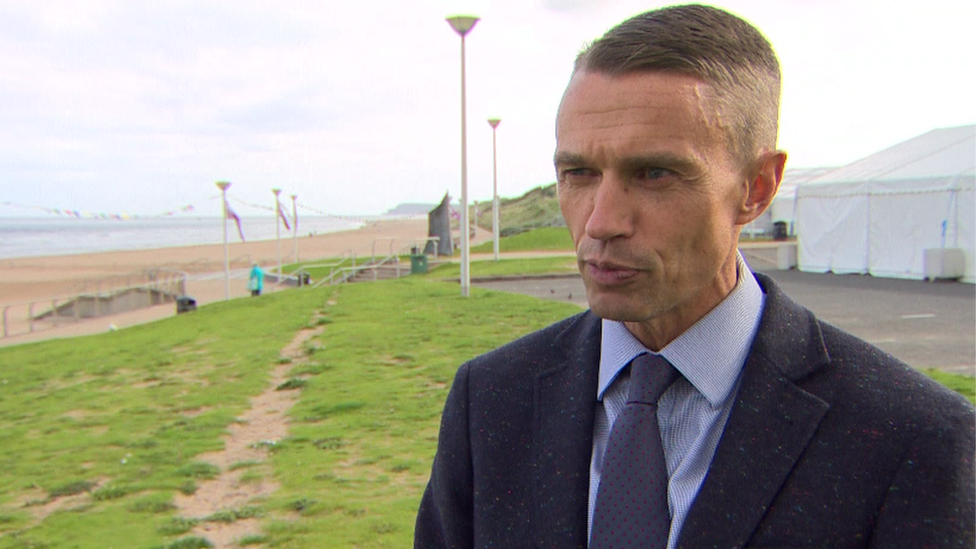
- Published7 October 2020

- Published9 August 2019
